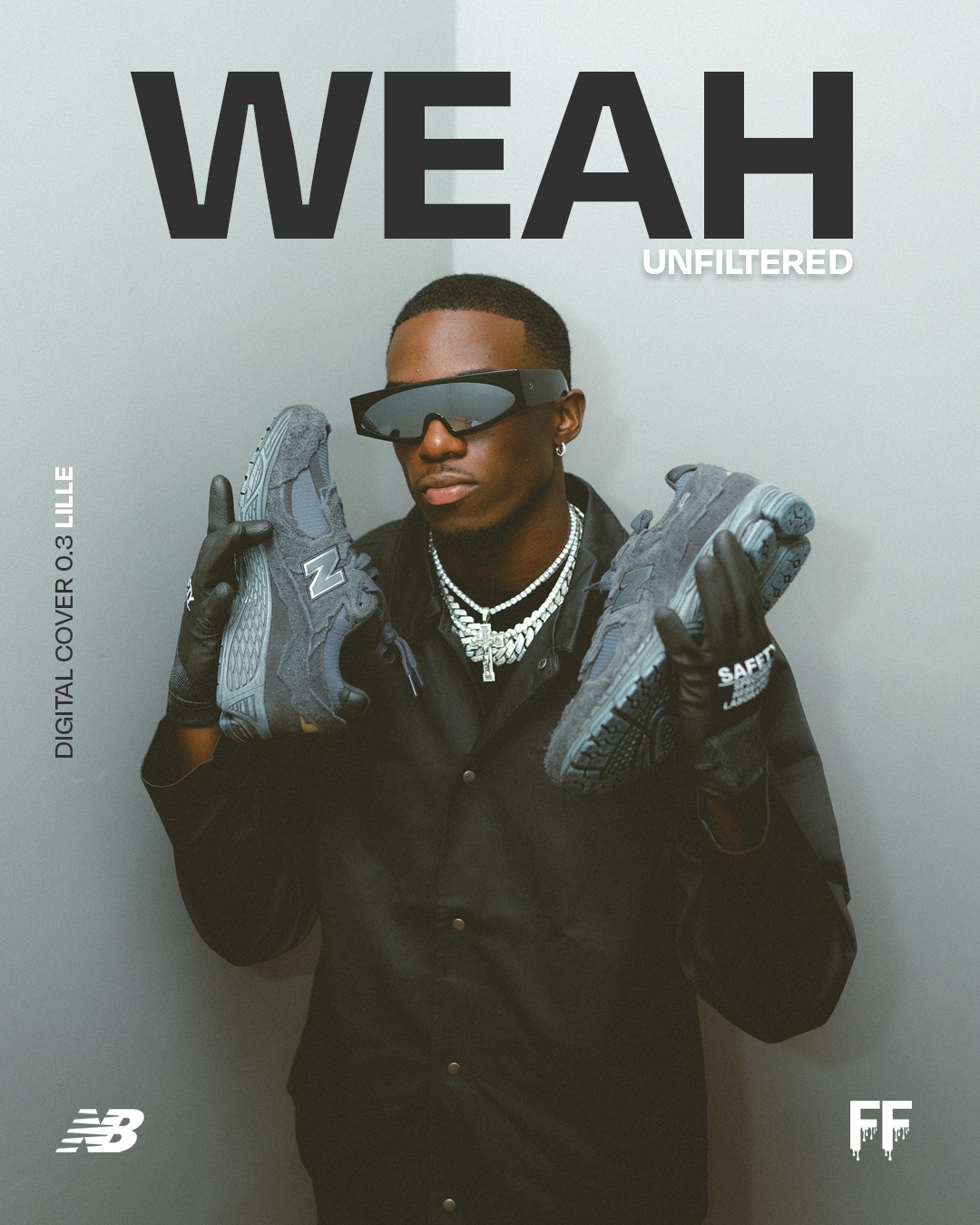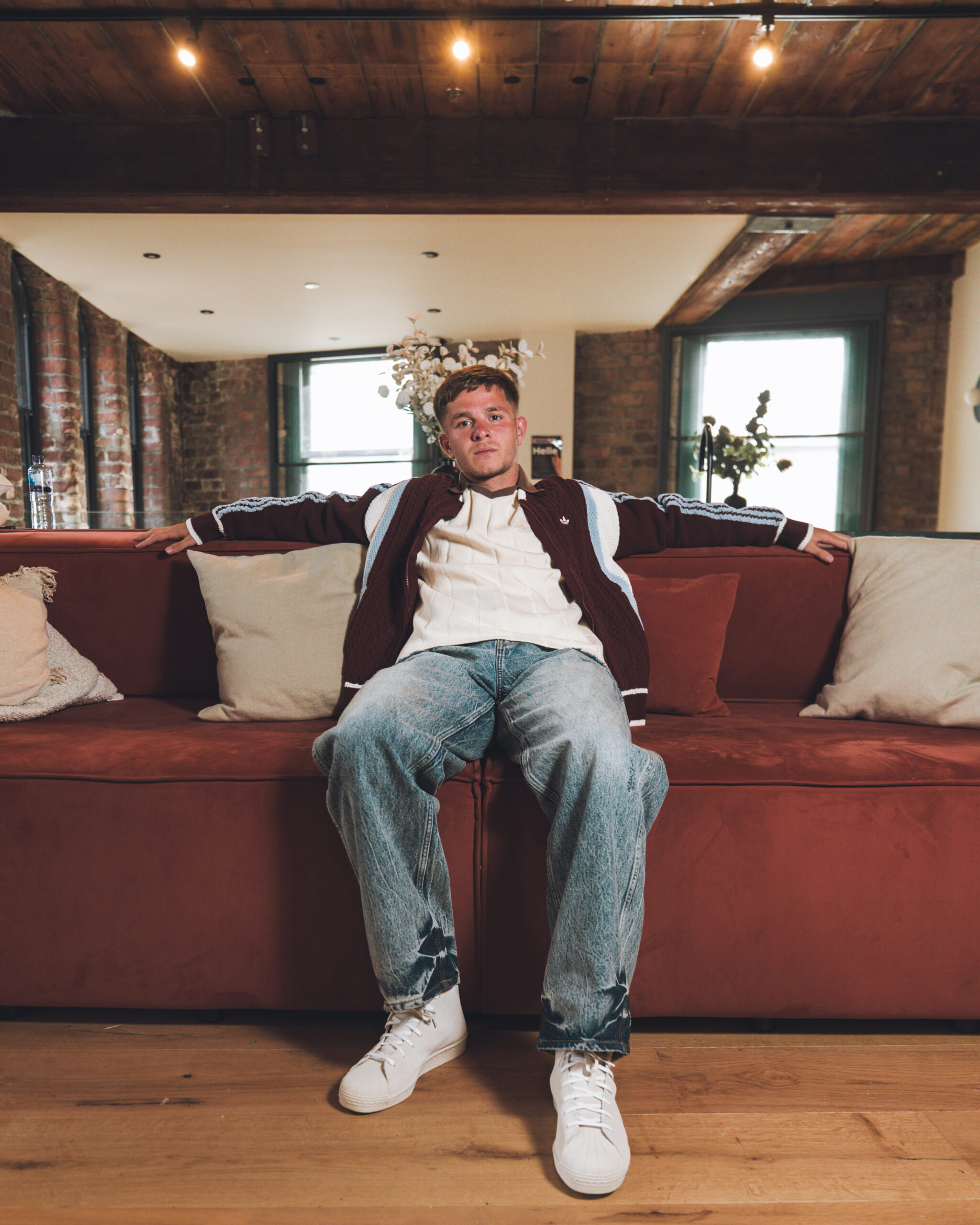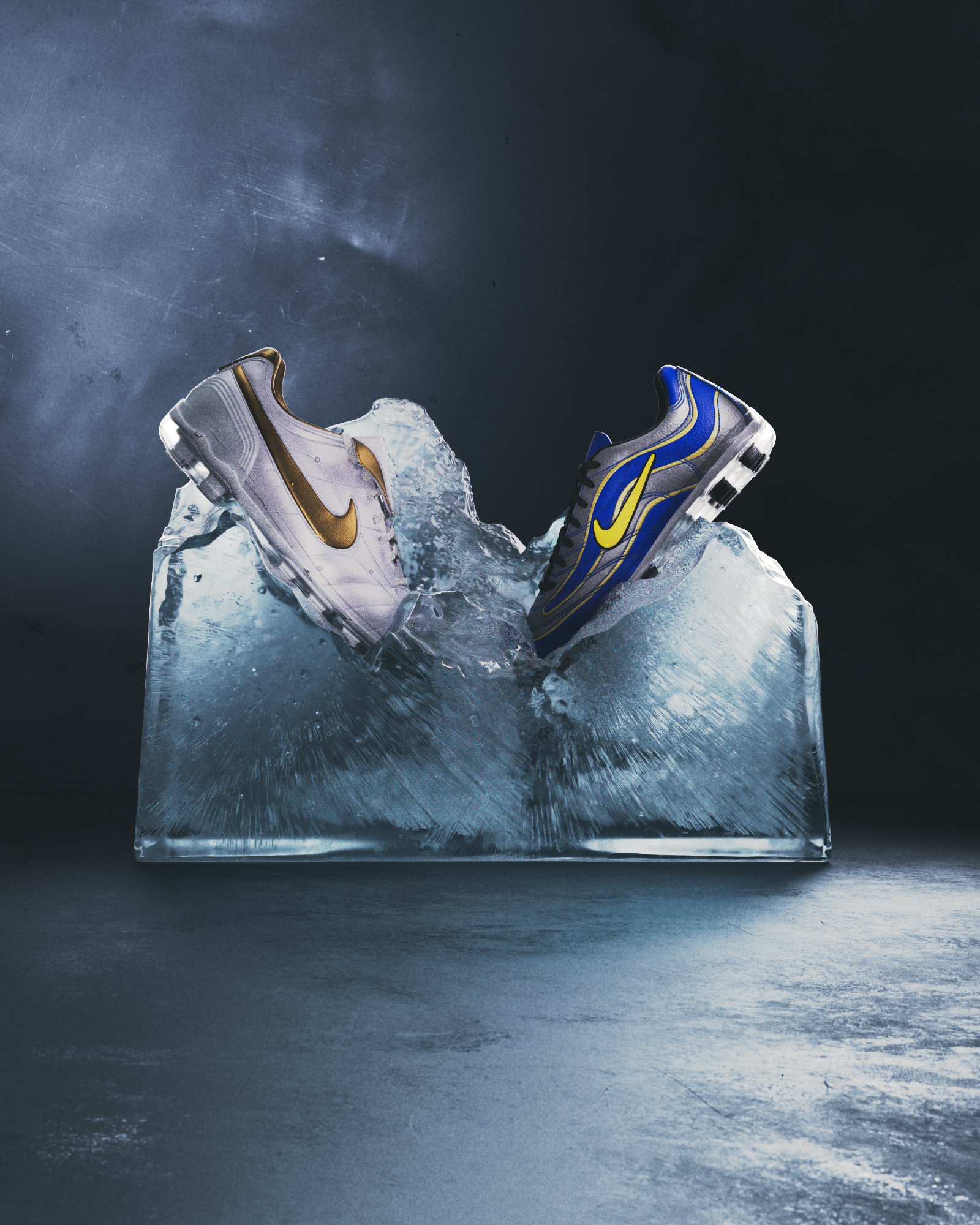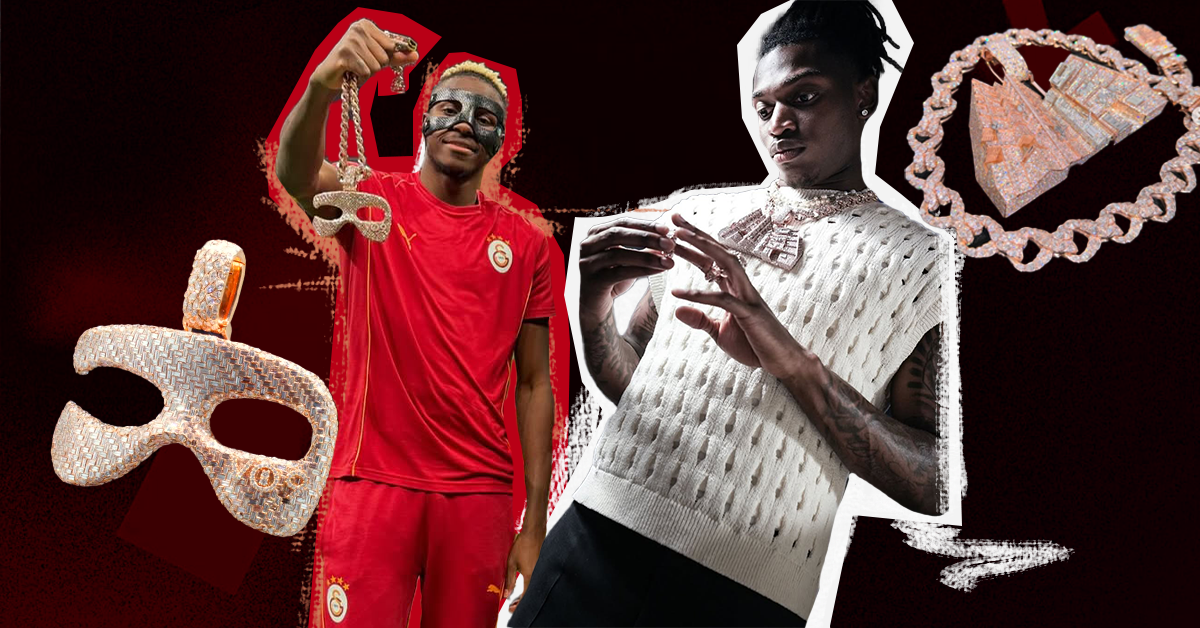“I hope I have an impact on the world in a sense where people look at me as a young kid living his dreams and living his life,” Timothy Weah says from the living room sofa of his Lille home.
It’s a wet and miserable Wednesday in the North of France with showers and grey skies having persisted from morning ’till evening. Despite this, the mood of the Les Dogues star could not be more different.
The 22-year-old has spent the majority of his day on set for a shoot with New Balance promoting a new, unreleased boot alongside the Boston-founded brand and with time now heading deep into the evening, Weah would be forgiven for lacking energy, as any person would.
But Timothy Weah is not just any person. Nor is he what you think.
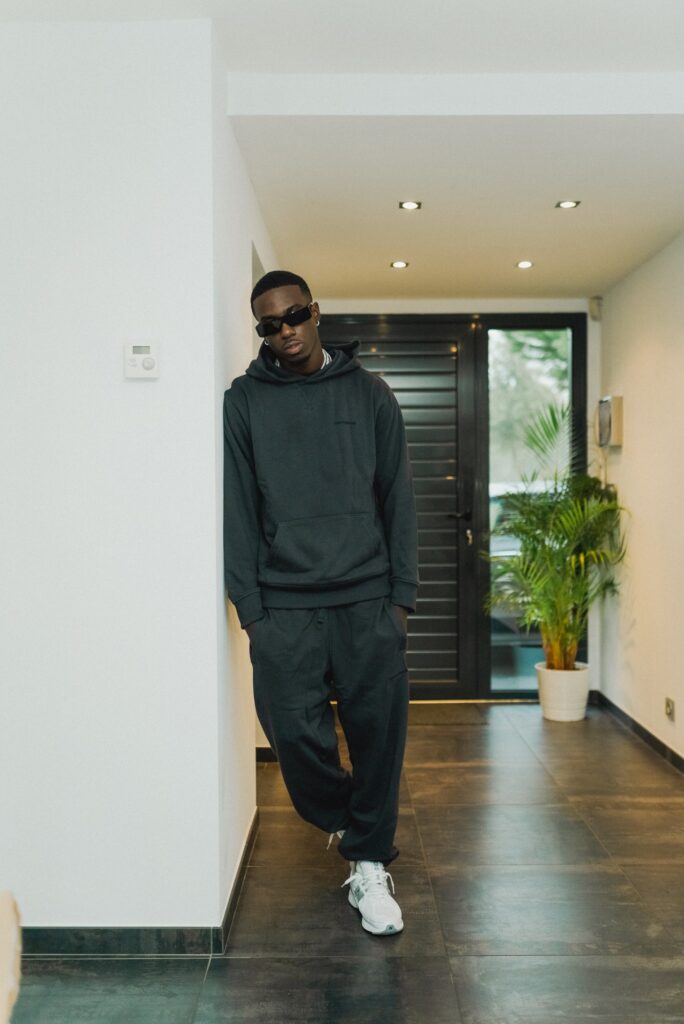
Like New Balance, Weah originates from the United States. Born in New York, a city that birthed fashion icons such as A$AP Rocky, Weah credits his birthplace for his style. “We all know that New York is one of the most influential places to go for fashion, alongside Paris,” he says.
“Growing up in New York, you get a bit of everything. You have people from uptown, the Bronx who are particularly Spanish so you get that flavour. You got the Jamaicans who live in Queens and you got the Irish people that also live in Queens, so you get a mix of different things and you take inspiration from everyone. I think that’s what you get in the fashion culture as well as the music culture.”
Alongside NYC, it would also be his father’s interest in fashion that ignited the spark in Weah that has made him one of football’s flyest characters. “My interest in fashion started very early. Growing up with a father that was an athlete, he was also into fashion having lived in Italy, France and all these different places. He had Dolce & Gabbana, Versace and Dior in his closet so I’d see all of that and I’d be like ‘damn, one day when I make it I want to get all this stuff too!’.”
That day has already arrived for Weah. With a designer-filled wardrobe of his own and a Ligue 1 title to his name before turning twenty-three, he now has the backing of a global brand in New Balance who have positioned him at the forefront of their mission to take over not just the game, but the world.
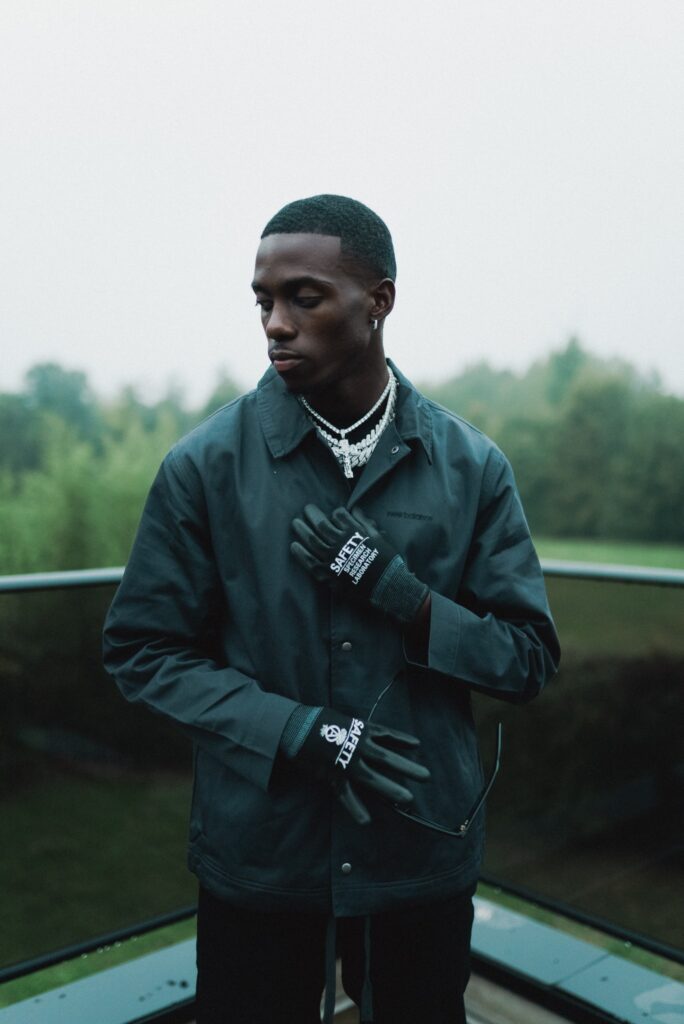
“New Balance has been huge for me,” Weah says whilst donning the brand from head to toe. “Their motto is about feeling free and feeling like you can do whatever you want, showing the world that you’re fearless, you know? They gave me an opportunity to really express myself and do the things I really want to do.”
“With the photoshoots we have, I have a say in it and with the videos and content we make, I have a say. It’s fun knowing I can use the platform they’ve given me to train both my fashion sense and creativeness and dive into those situations.”
The brand’s rise has seen global superstars such as the NBA’s Kahwi Leonard, rapper Jack Harlow and the multi-talented Jaden Smith sign with New Balance in recent years with Raheem Sterling, Sadio Mané and Bukayo Saka now rocking the iconic NB logo in the football scene alongside Weah.
Though hugely popular already, Weah believes the continued growth of the brand is only just getting started. “For me, New Balance is the best brand right now and I’m so happy that I’m with them,” he tells me.
“If you look five years before now, personally, I didn’t really see a lot of people rocking New Balance and if you look today, their shoes are everywhere. Everyone wants a 550!”
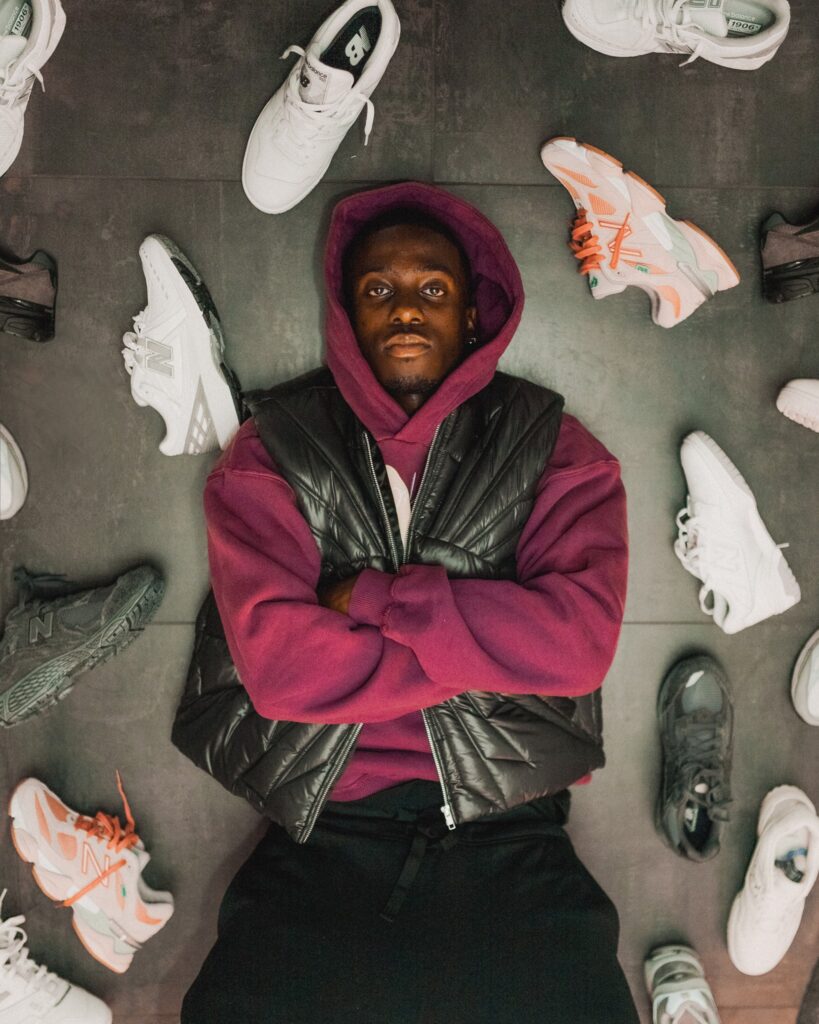
“They’re clean, they’re slick and I think New Balance is perfect for the stage and culture that we’re currently in. Their collaboration with Aimé Leon Dore is probably the craziest thing out there right now. Personally, I believe New Balance is already the biggest shoe brand, without a doubt, but they’re definitely going to be the best for some time to come.”
If you’re yet to jump on the New Balance wave, it’d be hard to believe you haven’t been living under a rock. There’s no need to panic, though. I ask Weah which product he would recommend to a first-time customer. His response?
“I’d tell them to be simple. You want to go with the fresh 550s. For me, as I said earlier, it’s one of the cleanest shoes around. I’m huge on shoes, I’m a shoe-head! One of the hardest shoes I have right now is the New Balance x Joe Freshgoods. Crazy colourway, the quality of the shoe, the material used… it’s something that a lot of people wouldn’t know how to style but those are the hardest shoes I have.”
Before entering his mid-twenties, Weah has already played in the U.S., France and Scotland having had spells with the New York Red Bulls, Paris Saint-Germain and Celtic before returning to France with Lille in 2019. Living in three vastly different countries has given him the opportunity to see different cultures and styles that others may not get to experience, something he says has shaped the way he sees fashion.
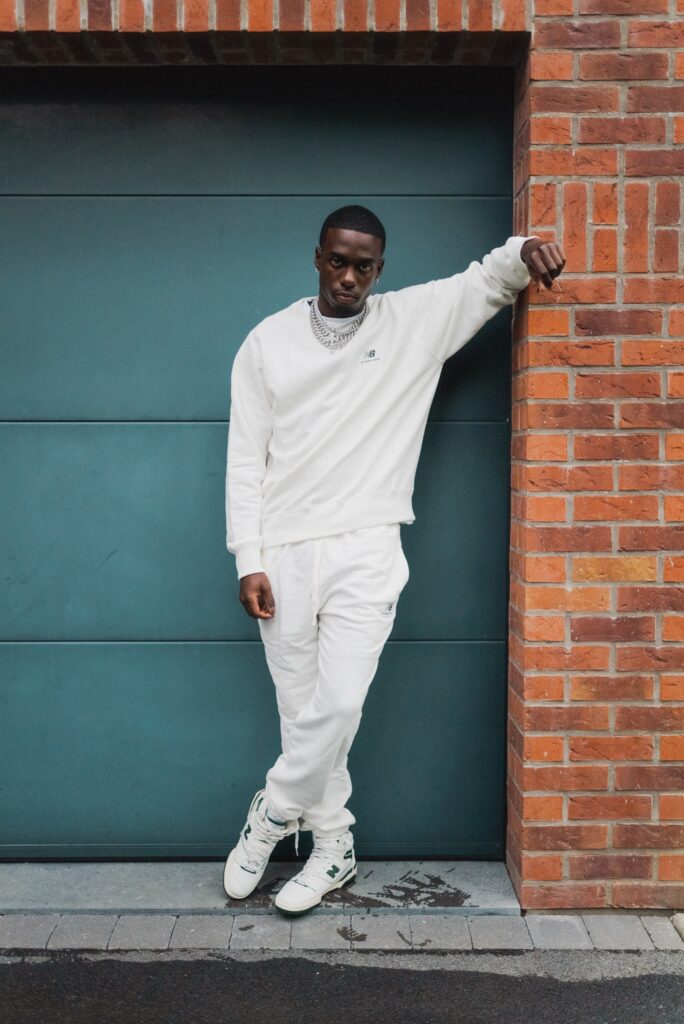
“I feel like the style in every place I’ve been has been very different but for me, I always say just because it’s different doesn’t mean it’s not fashion. You feel me? If one person dresses one way, that’s how they see it and that’s their vision,” he tells me passionately.
“It’s just like art. Jean-Michael Basquait was painting his type of way and Andy Warhol was painting a different type of way but when they came together, it was something beautiful. I think it’s the same thing with fashion. Everyone has their own fashion sense and it’s beautiful in their own way. I love and respect it, it’s a way for people to express themselves and show who they are.”
The conversation around self-expression brings us onto the rise of football x fashion and the differing styles of players in the game with each bidding to show their personality away from the pitch. For Weah, the new generation of ballers are making the most of what the previous generations weren’t fortunate enough to have at their disposal: the ‘Gram.
“Players are showing their drip and I think with social media, you now have the platform to express yourself in a way that people didn’t have before.”
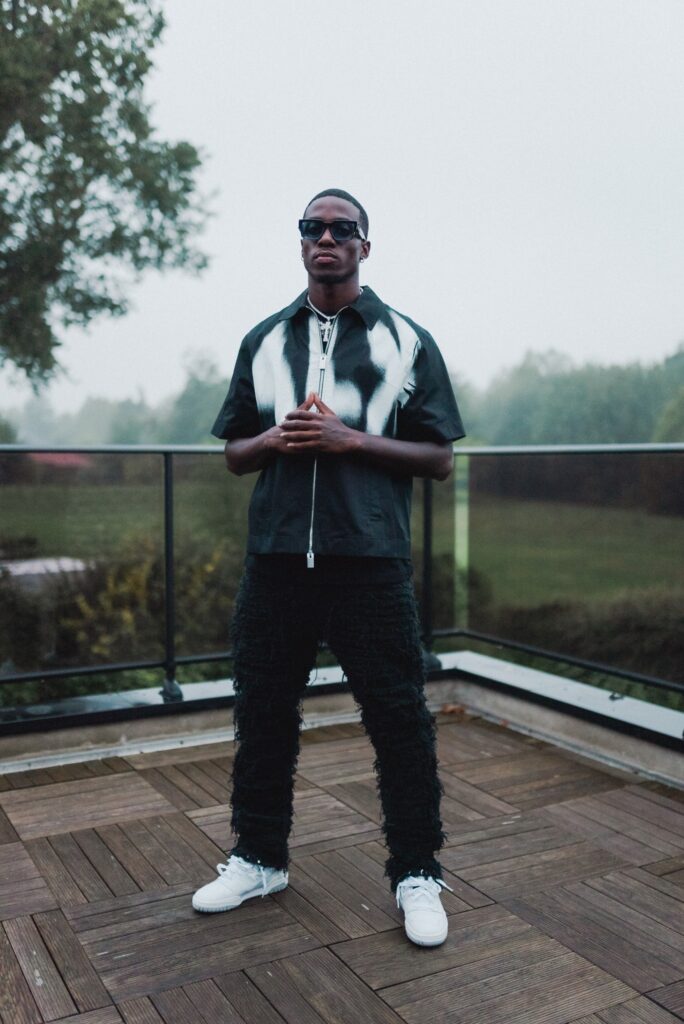
“I think seeing the NBA and seeing how they really push their fashion, I feel like as footballers, we want to do the same. Rap and hip-hop culture and all those other things come into play too. Guys are listening to music and catching a vibe and I feel like footballers are just feeding off all of that,” Weah explains.
“Everyone wants to be a star, everyone wants to be an artist and everyone wants to be a fashion icon and I think in football, we’re beginning to see that. Now you see a lot of players like Marcus Thuram, crazy drip! You’re seeing Trevoh Chalobah, crazy drip! Those are my guys and I think together, we’re taking it to that next level for sure.”
For most ballers with interests outside of the game, the ‘focus on football’ rhetoric is regularly thrown their way with the older generation of football fans seemingly incapable of letting go of their traditional mindset regarding athletes. For Weah, players are using their interest in fashion off the pitch to boost their performances on it. “I feel like fashion plays a huge part in how you play on the field and how you act off it.”
“If you dress nice, you’re going to move with swagger and like you’re looking good. On the field, a lot of players like to cut their socks, wear wrist tape and add a little sauce to it. If you dress well, you play well and if you dress well, you feel good.”
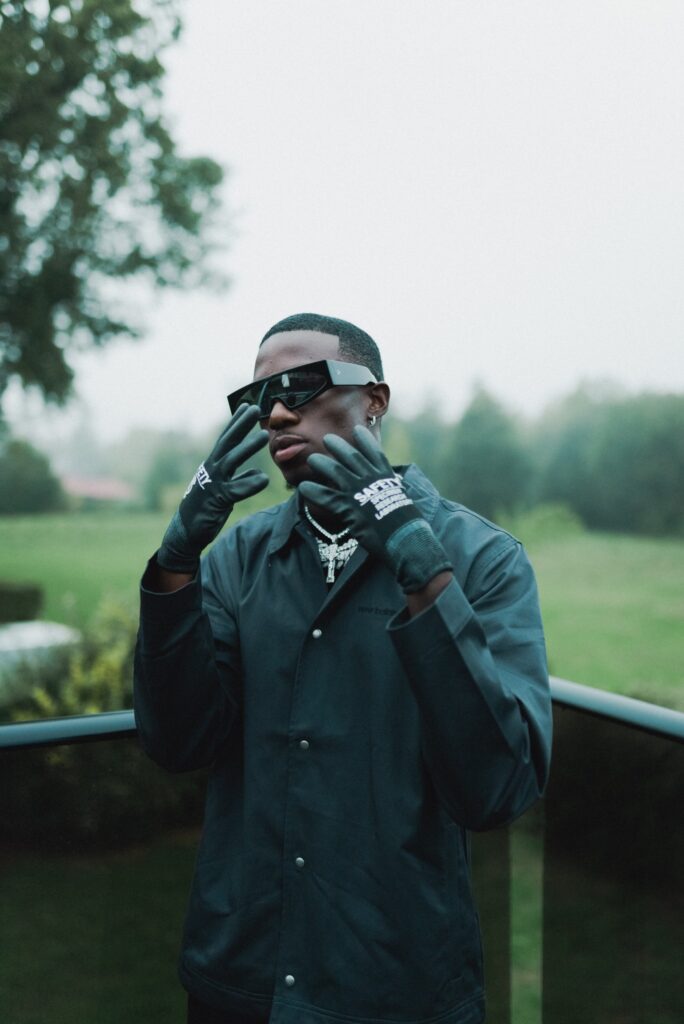
In typical fashion, I ask whether Weah would like to see NBA-style pre-game fits implemented in football. “I feel like it’s something they need to add because I’m tired of wearing the thing as my teammates!” he says with laughter. “That’s another way fashion would level up in football, players coming to the game with photographers there ready to take pictures and then ‘boom!’, you’re on the front page of Vogue.”
I respond by asking him how hard he would go if given the opportunity to rock his own pieces before each game. “For game day, you’ve got to put on your best stuff,” he says enthusiastically. “You gotta be the best dressed, you definitely have to break the internet I think!”
Keen to find out his style preference when he’s not trying to break the internet, I ask Weah about his everyday style, something his fans aren’t always able to see. “It’s really lowkey. I’m really a guy that likes to wear black clothes. Whether it’s drippy clothes, it could be something from Rick Owens or Balenciaga, but it’s calm, it’s lowkey, it’s fitted and chill. I’m not really into flashy colours or flashy things, I just like to stay mellow and vibe out.”
As Weah switches between each outfit, his perfectly-curated playlist plays around the house from the speaker based in his kitchen with the latest track from Compton-born rapper YG bouncing from room to room. “This is going to be the album of the year,” he tells me, something I’d find hard to disagree with. Rarely a moment goes by without Weah breaking into song or moving to each beat, giving me an insight into another huge passion of his: music.
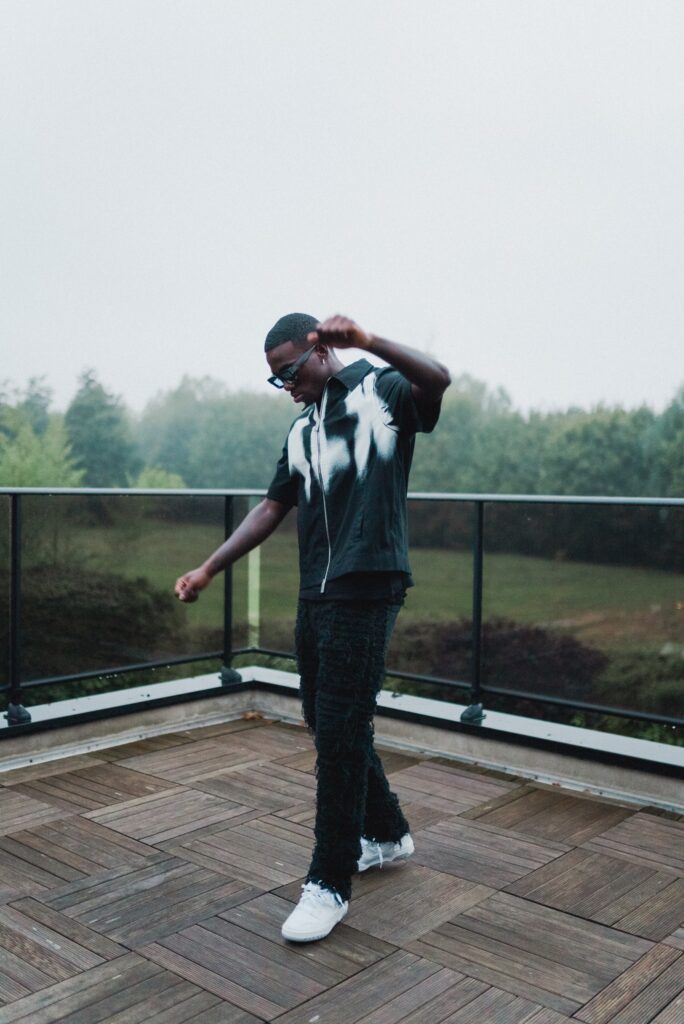
“Music has been huge in my life. I’ve been listening to music since before I can walk,” Weah reveals. “My Dad is from Liberia and my Mum is Jamaican, so music is heavily rooted in our culture. Growing up with music, I listened to classical, jazz, r&b, hip-hop and reggaeton, all of that. Getting the flavours from each of those genres is huge on why I dress the way I dress. It adds the ability to manoeuvre through different styles and different textures.”
I take a further dive into Weah’s musical taste by quizzing him on his current rotation: “I’ve been really listening to afrobeats hard if I’m keeping it real.”
“I think two years ago I was bumping afrobeats on some regular stuff but now, I’ve been tapping into a lot of WizKid, Rema, Tems, Burna Boy and Victony so I’m heavy on the afrobeats right now. Travis Scott, Drake and those guys are definitely the legends I have on repeat in my playlist too.”
“One album I couldn’t live without? Oh man, that’s a good question! I think right now with the vibe that I’m in, of being in a mellow vibe and being chill, it would be WizKid ‘Made In Lagos’. It’s one of the best albums from start to finish. It’s just smooth, clean and elegant. I love it.”
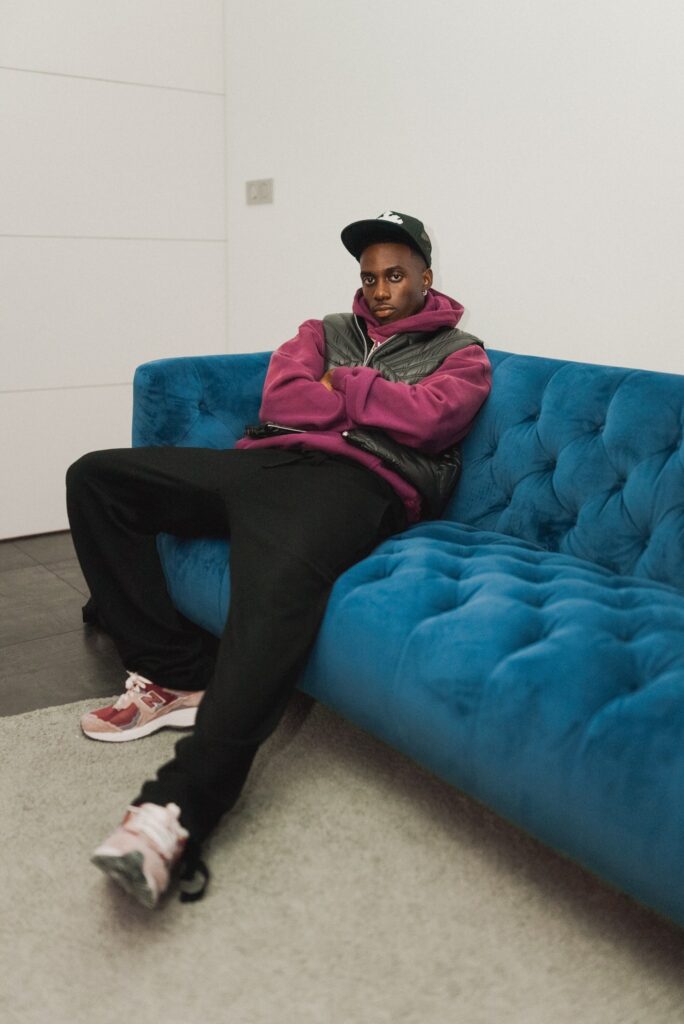
From Weah’s energy when talking about music to the tracks playing around his house, I ask a question I should probably already know the answer to – who is in charge of the music in the dressing room?
“I’m always the dressing room DJ. They [other players] love it, man. Especially on the national team. When I go there, I’m DJ’ing the whole time. The locker room, the bus, anywhere. We have it on lock!”
Having never previously spoken to Weah before my arrival in Lille, I was unaware of what to expect from the U.S. international aside from the common knowledge of his ability in football and his range in fashion. After learning about his interest in music and specifically his taste for it, it’d be easy to label the youngster as a triple threat, mixing football, fashion and music into one. But after spending time with him, such a compliment would be doing him a disservice. Weah is more than a triple threat.
From his understanding of the different cultures he’s been indulged in to his referencing of artists Basquait and Warhol when describing his perspective of fashion, Weah is pioneering a new wave of ballers aiming to remove the stereotypes of athletes being one-dimensional and should ‘stick to what they’re good at’.
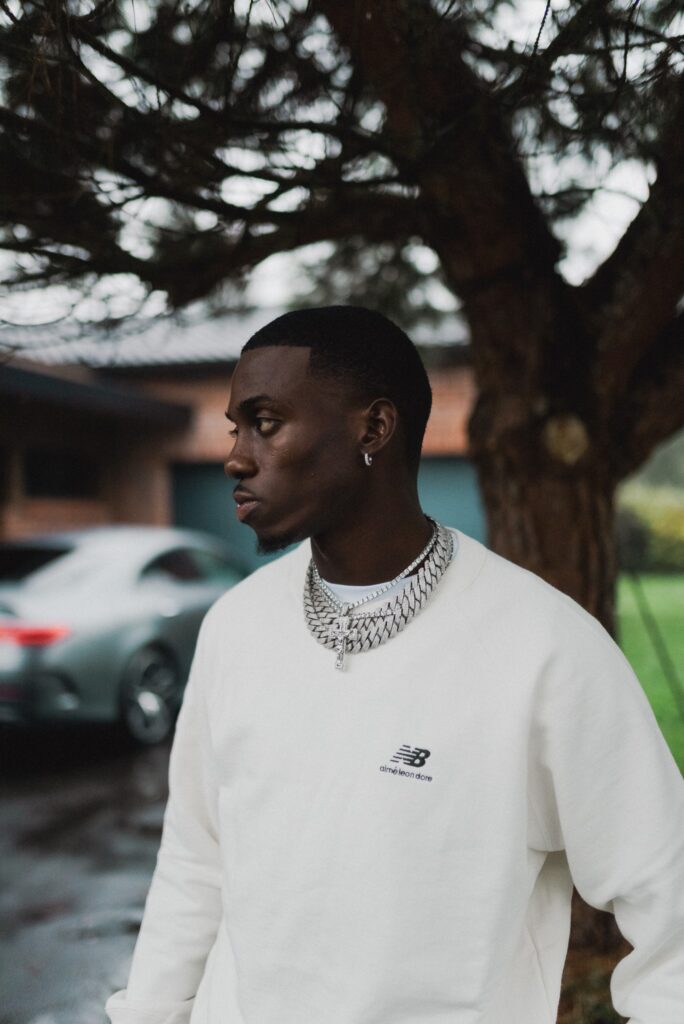
With Gen-Z chasing authenticity from players more than ever, Weah is seemingly incapable of acting anything other than himself. Aware of the young people in society who may be struggling with a lack of identity amidst the pressures of social media and ever-changing demands to feel included, I bring our conversation to a close with one last question: ‘What would be your message to the youth of today?’.”
“To the young kids coming after me, just be you,” Weah says. “Do what you want and dress how you want. Listen to whatever music you want and do your thing because at the end of the day, people are going to judge you and you can’t watch that.”
“You have to block out the noise and do you. Be you. Be free. Live life. Live your life like a butterfly, you know what I mean? People always ask me what that means. Have you ever seen a butterfly do anything? Nah, it just vibes. So just vibe.”
In Partnership With: New Balance
Styled By: Timothy Weah Himself
Shot By: Shane Bain

